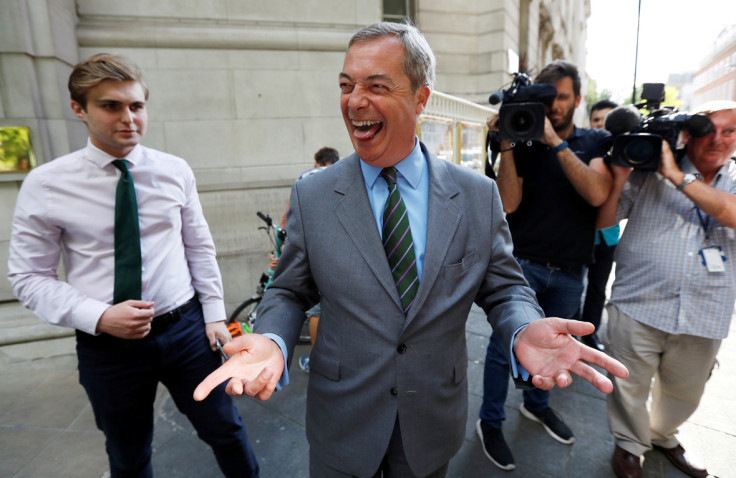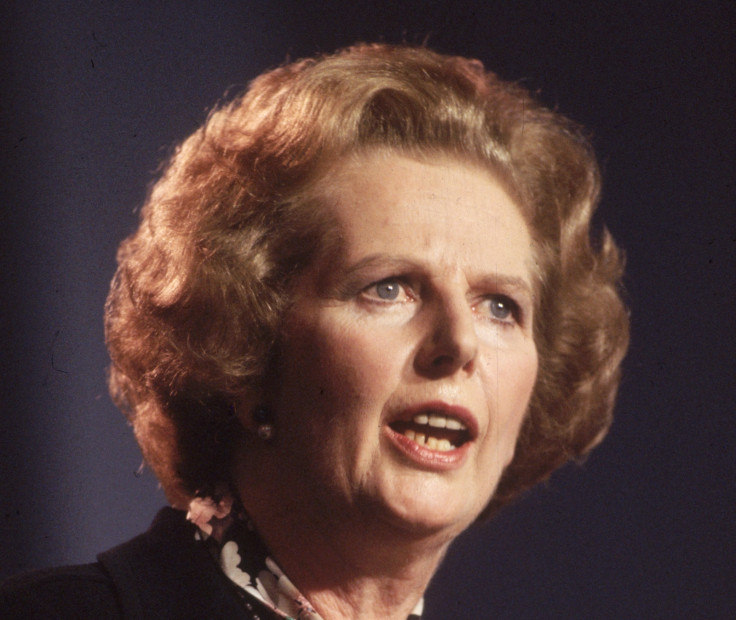A 'centrist' party is the political equivalent of a tantrum
The 'centre', in its common parlance, has simply become a byword for a banal smudge of catchphrases.
The urge to summon into being a new political party is both a hallmark of our First-Past-the-Post electoral system and about the hardest thing to pull off successfully within it. The system creates parties in which fellow members are extraordinarily ill-suited to one another; it then attaches an exorbitant price tag to going it alone.
Thus we have in Britain political parties featuring communists side by side with social democrats, and Burkean Conservatives in bed with swivel-eyed Randian libertarians.
The best example of a successful new party is probably the Social Democratic Party, formed in the 1980s by disgruntled Labour moderates.
And yet, even though the newly-formed SDP went on to win 25% of the national vote at the 1983 election, the party found itself with just 23 MPs. What the SDP did do was help ensure a triple digit victory for Margaret Thatcher's Conservatives.
The SDP itself later merged with the Liberal Party, confirming that the surest way to thrive under the British electoral system is to embed oneself in an existing political party.
This is the point that many Labour moderates – impatient to break away from Jeremy Corbyn's Labour and create a new 'centrist' party – forget when they cite Emmanuel Macron as their model.
Macron's rise earlier this year was mercurial. It also took place within a French presidential system very unlike our own. A new political party led by a British version of Macron would likely suffer the same fate as UKIP under its former leader Nigel Farage.
Farage toiled away doggedly for years, yet managed to secure just a single MP, despite having a significant body of support in the country (UKIP picked up the third highest number of votes at the 2015 election).
The urge on the part of the Labour right to form a new party is unfathomable in this context. At the very least it takes a certain ego to believe it possible to emulate a politician like Emmanuel Macron in circumstances as unpropitious as the British political system.
But underlying attempt to form a new centrist party is the political equivalent of a tantrum. Toys are thrown out of the pram based on the notion that Jeremy Corbyn's rise to the summit of the Labour Party is some kind of coup or stitch up.

Instead of asking the tough questions – how did someone like Corbyn pick up so much support from young party members? etc. - it is so much easier (in theory at least) to flounce off and start over again.
It is the strategic equivalent of labelling one's political opponents "mad" or "evil" It represents what the novelist Philip Roth has, in another context, termed the "ecstasy of sanctimony". And the thing about self-righteousness is that it isn't usually willing to accommodate itself to self-reflection.
For all the criticism levelled at Jeremy Corbyn in terms of his apparent nostalgia for the 1970s, the remarkable thing about his want-away critics is the extent to which they too cling to a halcyon past. Indeed, centrism is increasingly synonymous with a desire simply to wish away the last decade and return to the nineties and early noughties – a time when the certainties that have been washed away in recent years still held sway.
The centre's obsession with 'shiny men' – content-free politicians who get by on charm and good looks – ought itself to set a few alarm bells ringing. Does this not betray a paucity of ideas? The 'centre', in its common parlance, has simply become a byword for a banal smudge of catchphrases – 'forward, not back' - and phony, snap-on smiles.
The fact is that the political settlement of recent years - ushered in by Margaret Thatcher's election victory in 1979 – has come unstuck. And if it ever worked it seems increasingly clear that it was built on an illusion – that of endless growth buttressed by reckless speculation in the City of London.

The notion – accepted tout court by the political centre - that the policies pursued during the purported years of plenty can be decoupled from the subsequent downturn is fanciful at best. The current decade is set to be the worst for pay growth since the Napoleonic wars according to one respected think tank, while the only answer coming from 'moderate' voices seems to be further austerity – in other words, a further reduction in the living standards of the poorest.
Thus there are material reasons why Jeremy Corbyn is the leader of the Labour Party and why a politician like Tony Blair is looked upon with such disdain. One needn't climb fully on board with this transformation – I have my own reservations about Corbynism – but the world has changed considerably in the past decade and it is important to recognise that politics has invariably changed with it.
Thatcher herself was a radical rather than a conservative. It is rather ironic, then, that so many of her loyal children should cling desperately to something she dedicated her political career to tearing up: a crumbling political consensus that is (once again) ripe for change.






















